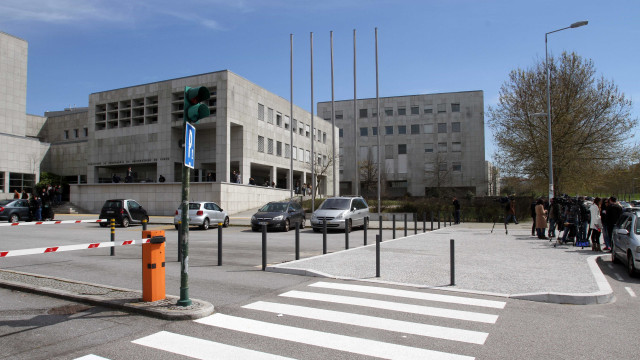The petitioners are advocating for legislation that mandates harsher penalties for the crime of domestic violence.
Among the initial signatories of the document is the group For a Fairer Country, established in 2019, which includes women’s and children’s rights activist Francisca de Magalhães Barros, Manuela Ramalho Eanes, Dulce Rocha, who will be the president of the Institute for Child Support until December 2024, former Minister of Internal Administration Rui Pereira, lawyer António Garcia Pereira, lawyer Isabel Aguiar Branco, and judge Clara Sottomayor.
As of 4:40 PM today, the petition had gathered 124,948 signatures.
The petition emerged due to the extraordinarily high number of homicides at the beginning of the year, rapes, and total lack of control over violence against women and children, stated Francisca de Magalhães Barros.
“I created this petition to recognize femicide as an independent crime, to classify rape as a public crime, and to advocate for harsher penalties for domestic violence, with the aim of abolishing suspended sentences, among other measures,” the activist indicated.
The document outlines the objective of raising awareness in the National Assembly about the urgency to legislate once more on effective measures to prevent and suppress crimes of violence against women, with amendments to the Penal Code concerning sexual violence and domestic violence, especially in cases where homicide occurs in this context.
“The Istanbul Convention, to which the Portuguese state is bound, requires the prosecution of the crime irrespective of the victim, and the current compliance offered by the Portuguese Penal Code is insufficient,” reads the text of the petition.

Three youths were detained on March 24 in Loures, in the Lisbon district, on suspicion of aggravated rape and child pornography crimes against a 16-year-old adolescent.
Notícias ao Minuto com Lusa | 11:49 – 04/04/2025
According to the authors, the Public Prosecutor’s Office “can” initiate the process, but it remains semi-public, and the victim can withdraw until the end of the trial hearing, which exposes them to all imaginable coercions by the perpetrator.
The initial signatories warn that “the data currently known reveals that requiring a complaint from the victim leads to the impunity of many rape crimes.”
“Just as with domestic violence, which was rightly transformed into a public crime, in this case, victims also fear retaliation from the aggressor and social stigmatization,” they describe.
Therefore, they argue, “the crime of rape should be made public,” particularly due to the “risk of the offender escaping unpunished in most cases and continuing their criminal career.”
The authors believe “there should be no fear that this transformation of the crime could lead to unjust convictions” because the Public Prosecutor’s Office, during the inquiry phase, and the courts, in subsequent phases, “will have to investigate whether the crime of rape was actually committed, considering the general rules of criminal liability and the guarantees granted to the defense.”

The association reinforced its “most sincere apology to all the students affected by the unacceptable acts that occurred during the AEFEUP Gala on March 14”.
Notícias ao Minuto com Lusa | 20:08 – 08/04/2025
Considering the “persistence and increase in the number of domestic violence crimes,” the petition argues that it is “urgent for the criminal law, in response to the greater severity and social reprehensibility of criminal conduct, to punish the crime more severely, to make the suspension of sentence execution less frequent, which often exposes victims to recidivism and even homicide, due to the high degree of danger of domestic violence.”
“Finally, and strictly complying with the Istanbul Convention, it is advisable to recognize femicide as an independent crime, considering its specific outlines, the context that favors its practice, the myriad legal goods and values violated beyond life itself, and the harmful consequences for children, especially if they are minors,” they add.




